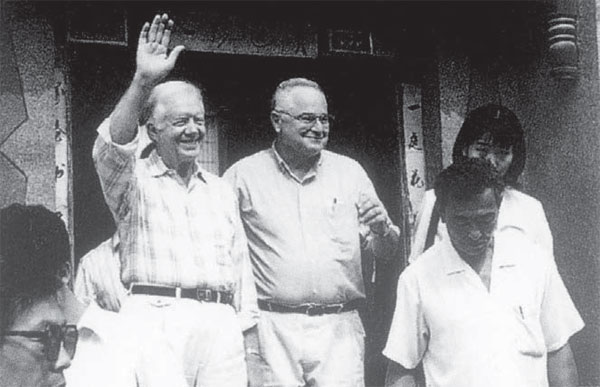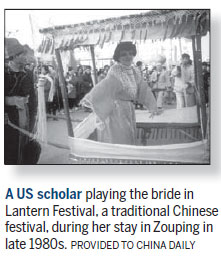Opening a window on rural China
Updated: 2016-03-11 08:08
By Zhao Xu and Zhao Ruixue(China Daily Europe)
|
|||||||||
|
Former US president Jimmy Carter (left) and US academic Michel Oksenberg (center) visit Zouping in 1997. [Photo provided to China Daily] |
Eventually, Zouping, with a population of more than 600,000, was chosen, and Shi, director of its foreign affairs office, was tasked with overseeing the project. That was when his heavy smoking began to alarm Oksenberg.
"After his visit in the summer of 1987, Oksenberg expressed his concerns that Shi might die from smoking," Alitto recalls. "He was genuinely concerned that his 'highly possible' death might harm the project that had taken so long to hatch."
Alitto's last visit to Zouping occurred in 2012. The 73-year-old says it felt as though he had traveled back through time to the days when China's streets looked distinctly different from those in the US.
"When I first arrived in Zouping, in 1986, the county town had only two completely paved roads, and there were still piles of hay on the streets of the oldest part of the county town. In fact, its first movie theater had just opened the year before," he says.
Feng Yuezhao, 61, head of Fengjiacun, one of more than 800 small settlements in Zouping, says the county was "very typical of rural China" in the 1980s. "It was neither rich nor poor. Back then, we had both agriculture and industry. Overall, the collective economy dominated."
Steep learning curve
Before the researchers could begin to come to grips with county life, they had to overcome a number of obstacles, including gaining a working knowledge of the local dialect, and a diet that included "delicacies" such as scorpions, silkworm larvae and grasshoppers.
The language barrier was daunting for Alitto, even though he had studied Chinese and had acted as an interpreter for the first official Chinese delegation to the US in 1972 in the wake of Richard Nixon's visit to China.
Qu Yanqing, a historian with the Zouping Archives Office, helped Alitto to settle into local life. He witnessed the US academic change from a man whose presence was "jarring" to someone who "could walk freely through almost every door in any village".
"One night, not long after we met, I invited him to my house for dinner. The next morning, an old lady who lived next door shouted to my wife over the low wall, 'How bold was your husband to bring that scary man home?'. I wondered what she would have said if she'd known that the 'scary man' had gulped down more than 20 cans of beer," Qu recalls, laughing.
Qu and Alitto have drunk together many times; sometimes in frustration, such as the time Alitto was despondent after being refused full access to the county archives, and sometimes with joy, such as at Qu's 60th birthday party in 2007, 16 years after the project ended.
"He's a sincere man and a loyal friend, with a dedication to truth that I so admire as a fellow historian," Qu says, adding that he didn't need to "chaperone" Alitto when he returned to Zouping in 1988.
"Although it was a decade after the 'cultural revolution' (1966-76), people still tended to keep their lips zipped, especially in front of foreigners. But Alitto had a knack for putting people at ease."
Today's Top News
German voters batter Merkel over migrant policy
Car bomb kills 34 in Turkish capital
Growth focus
Opening a window on rural China
Experts confident in growth objective
Clinton, Sanders spar over immigration
Scholar praises pragmatic government work report
China hits back at US over ZTE restrictions
Hot Topics
Lunar probe , China growth forecasts, Emission rules get tougher, China seen through 'colored lens', International board,
Editor's Picks
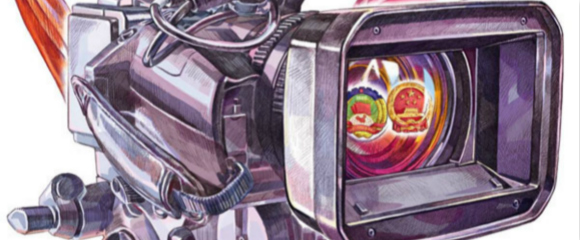
|
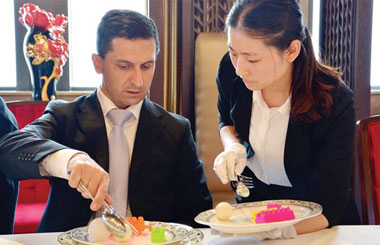
|

|
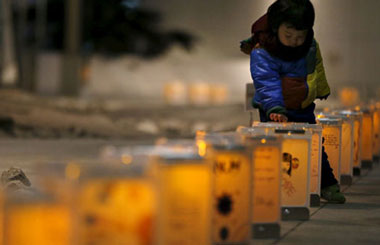
|
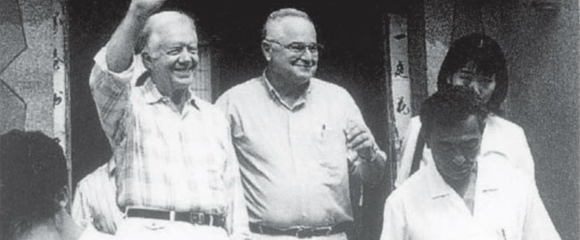
|

|
